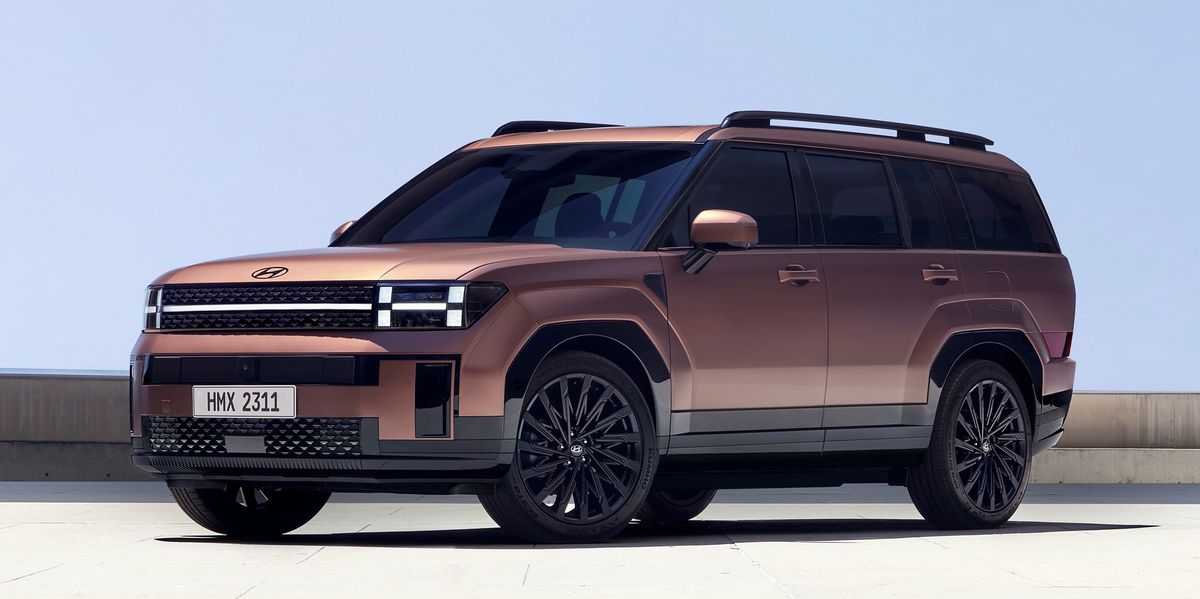So now things get interesting.
Hyundai Santa Fe is on my list. But they just released some info on the upcoming Santa Fe, which is supposed to be released later this year (that timing works well for me).
Assuming it is offered in a Hybrid, possibly a plug in Hybrid, then it might just be that it rises to the top of my list, provided that it is not too big. Using my current Audi A6 as the maximum length/size, maximum turning radius, the current 2023 generation Santa Fe fits my urban parking garage needs and also fits my rural lifestyle for mid-size cargo capacity. The newest version is getting a little bigger. But how much bigger? All I know is that I like the looks.
Assuming the 2024 updated Santa Fe comes in at only SLIGHTLY bigger than the 2023, with fuel economy Hybrid 30-32mpg range, and a turning radius that is no wider than my current Audi A6, and a price tag that is modestly higher than the current 2023, then I am impressed and would put the Hyundai Santa Fe above the Toyota Venza on my list. Not sure if I would put it above the Toyota Crown, which I also think is just about perfect. Definitely would put it above the Lexus ES hybrid, even if the Lexus is the most luxurious and gets the highest mpg.

 www.caranddriver.com
www.caranddriver.com
Hyundai Santa Fe is on my list. But they just released some info on the upcoming Santa Fe, which is supposed to be released later this year (that timing works well for me).
Assuming it is offered in a Hybrid, possibly a plug in Hybrid, then it might just be that it rises to the top of my list, provided that it is not too big. Using my current Audi A6 as the maximum length/size, maximum turning radius, the current 2023 generation Santa Fe fits my urban parking garage needs and also fits my rural lifestyle for mid-size cargo capacity. The newest version is getting a little bigger. But how much bigger? All I know is that I like the looks.
Assuming the 2024 updated Santa Fe comes in at only SLIGHTLY bigger than the 2023, with fuel economy Hybrid 30-32mpg range, and a turning radius that is no wider than my current Audi A6, and a price tag that is modestly higher than the current 2023, then I am impressed and would put the Hyundai Santa Fe above the Toyota Venza on my list. Not sure if I would put it above the Toyota Crown, which I also think is just about perfect. Definitely would put it above the Lexus ES hybrid, even if the Lexus is the most luxurious and gets the highest mpg.

2024 Hyundai Santa Fe Undergoes a Wild Design Transformation
The boxy new mid-size SUV promises a longer wheelbase, greater cargo capacity, and a more luxurious interior with an available third row of seats.


 I have no idea how he managed to do that and I was quite surprised he admitted it to me. I just didn't ask.
I have no idea how he managed to do that and I was quite surprised he admitted it to me. I just didn't ask.